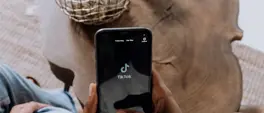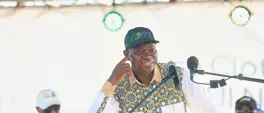Swiss town hands three artefacts back to South Africa
AFP
28 October 2025 | 17:33The return of the items comes ahead of South African President Cyril Ramaphosa's state visit to Switzerland on Wednesday and Thursday.

President Cyril Ramaphosa, on Tuesday, 28 October 2025, arrived in Switzerland for a two-day State Visit at the invitation of President Karin Keller-Sutter of the Swiss Confederation. Picture: @PresidencyZA/X.
GENEVA - The Swiss town of Neuchatel on Tuesday handed over to South Africa three artefacts that had spent more than a century in one of its museums.
The set of 30 divining bones in a woven basket, a bull's foot bone used as an amulet, and a walking staff were purchased by Swiss missionary and ethnographer Henri-Alexandre Junod.
The items came from the regent of the Nkuna chiefdom's Shilubana royal family, with whom Junod had become close friends. They were then brought back to Neuchatel in northwest Switzerland.
The return of the items comes ahead of South African President Cyril Ramaphosa's state visit to Switzerland on Wednesday and Thursday.
"Neuchatel today handed over to South Africa three objects of symbolic and religious significance that had been housed in the collections of the Ethnographic Museum of Neuchatel for over a century," the town said in a statement.
"The return of these artefacts to their country of origin attests to the excellent state of relations between Switzerland and South Africa."
South Africa's ambassador to theDemocratic Republic of Congo Abel Mxolisi Shilubane, a descendant of the Shilubana family, welcomed the gesture and thanked the Neuchatel authorities for the handover, according to the Swiss domestic news agency Keystone-ATS.
The items have their origins in Shiluvane in South Africa's northeastern Limpopo Province.
Swiss missionaries first arrived in Shiluvane in 1886. The friendship between Junod and regent Mugevisa Mankhelu Shilubana led to the creation of a primary school, a still-standing secondary school, a hospital and a Swiss missionary church.
Junod finally returned from Africa in 1920 and died in 1934, aged 70.
His publication "The Life of a South African Tribe", about the Tsonga people -- whose language he also codified -- is considered a major work in African ethnography.
The three items had not formed part of the museum's permanent exhibition since the 1950s. Talks on the voluntary transfer began in 2016.
At the town hall on Tuesday, a South African delegation signed a deed transferring ownership.
"It is a moving moment to see these artefacts return to their country and family of origin, where they will be able to regain their symbolic and religious function," said town council leader Nicole Baur.
Get the whole picture 💡
Take a look at the topic timeline for all related articles.

















